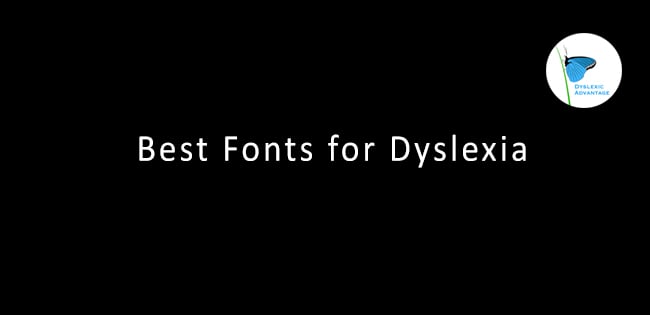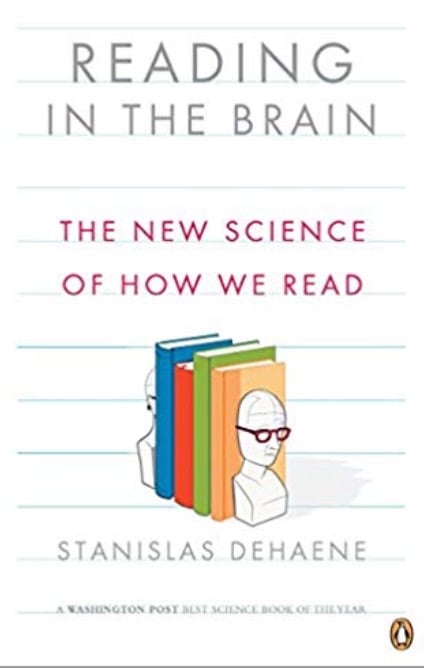Sight words are words that must be memorized by sight, rather than being sounded out phonetically. Sight words are important to learn because once children are able to read the most common 100 sight words, they can read up to 50% of most children’s literature. Mastery of the top 300 words, gives students access to 75% of what is printed in most children’s literature. It’s especially important for dyslexic students to learn their sight words with multisensory strategies because sight words account for many of the most commonly misspelled words in writing. You may hear sight words referred to by many names, such as Dolch words, Fry words, high frequency, or even Orton-Gillingham red words. The most important thing to know is that these words […]
A Home Run Hit with Humorous Poetry [Premium]
Education Prof Benita Bruster was invited to work with five 4th grade boys identified as struggling readers. When she asked them to suggest a favorite poet, the response was not unexpected “Poetry is dumb”, “Girls like poetry”, etc. When she asked about a favorite musician, she got a rousing response – but then she countered with, “I hate to break it to you, but you all like poetry…lyrics are just poems set to music.” Drawing on some cutting edge academic research (see Turn Your Boys to Readers on page 14), Benita predicted that boys would enjoy poems that were “silly, bizarre, gross, or absurd”. She chose her start with the poem, A Wild Turkey Comments on His Portrait. “Rather than passing out copies of the […]
Could it be GRAMMAR? [Premium]
Hidden grammar difficulties can be common reason why older students with dyslexia hit a plateau with reading, writing, and even testing. The problem is so subtle at times that many difficulties may be missed for years if not for their entire academic careers. One of the reasons that the problem is difficult to detect is that even many standardized tests that are commonly used for assessing the possibility of dyslexia either don’t test for it or they don’t pinpoint the problems that cause the student to struggle. In the early grades, students who have “overcome dyslexia” by the mastery of decoding, may find they hit a plateau as sentences become longer and more complex. In the middle and high school years, unrecognized grammar problems may […]
COMICS AND DYSLEXIA: A Curious Connection…
"The first book I ever read was a comic book..." "Comics were my lifeline..." "The way I got through college, was comics..." What is it about comics? So many kids and adults over the years have told us how important comics are to their reading. In fact, they...
The Best Fonts for Dyslexia
With increasing awareness of the visual differences associated with dyslexia and the high incidence of dyslexia in the general population (15-20%), the world seems poised to change how they present print to dyslexic readers. What fonts are best for dyslexic...
The Remediated Student – WHAT TO EXPECT [PREMIUM]
For the overwhelming majority of dyslexics, early intervention helps with the decoding step of reading. Usually 2-3 months of intervention is enough to see a measurable difference, and at least in our experience, 1-3 years to bring most children from failing their grade to being able to keep up in diverse subjects at grade-level with appropriate accommodations and sometimes modifications in place. What Should a Teacher Expect with a Remediated Student? Remediated students can vary a great deal depending on whether they are gifted, dysgraphic, dyspraxic, dyscalculic, have attention or working memory difficulties, or English as a Second Language. In general, though, students who have successfully been remediated are able to decode text on grade-level, but may still have slow and inaccurate reading, difficulty reading aloud, […]
Additional Resources from Premium Issue 26 [Premium]
Additional Premium Resources February 2018 Issue 26. You must be logged into your account to access: False Memories, Verbatim vs. Gist Recall, Persistence and Transcience of Memory, and Visual Perceptual and Handwriting Skills of Student with Dyspraxia (DCD). False memory for orthographically vs semantically similar words in adolescents with dyslexia. Verbatim and Gist Recall of Sentences by Dyslexia and Non-Dyslexic Adults The Persistence and Transience of Memory Visual perceptual and Handwriting Skills in Children with Developmental Coordination Disorder
Positive Strategies for College [PREMIUM]
In a recent research study (abstract only) of dyslexic students at college, the following strategies were mentioned: 1. Go to Lecture and Just Listen. It was common for students to be unable to listen and note-take at the same. Face-to-face lectures were preferred to recorded lectures because audio quality was sometimes bad, and some students need to see the teacher’s face and his or her gestures to fully comprehend what was being said. Request a Note-Taker Early. One student said at times a note-taker had to be requested several weeks in advance (!). Record Notes with the One Note or Audionote App. 2. Prepare for Lecture. For classes where teachers make Powerpoints available before lecture, download and print so notes can be written on them […]
[PREMIUM] Reading and Spelling: When Sights and Sounds Don’t Match
TRICKY WORDS: WHEN SIGHTS AND SOUNDS DON’T MATCH Spotlight: Inflectional Suffixes Because many dyslexic students don’t have a visual imprint of words, there are common spelling or pronunciation errors that occur when word endings seem to vary. In most cases, being explicitly taught the different patterns can reduce a great deal of distress later. The technical term “inflectional suffixes” refers to word endings that change a word to make it grammatically correct, but don’t fundamentally change the meaning or the class of words that they are. For example, in the following sentences, the suffixes are shown in red: The dog barks. The dog barked. The endings may reflect whether a noun is singular or plural (e.g. dog or dogs) or whether the action is happening […]
HOW TO READ A WORDLESS PICTURE BOOK
With so much focus on reading for children with dyslexia, the choice of a wordless picture book might seem to be unusual, but it shouldn't be. Dyslexic children should be exposed to wordless picture books at an early age, and also be encouraged to continue read them...
Dyslexic Master Montessori Teacher ALISON AWES [Premium]
I recently had a chance to talk with Master Montessori Teacher Alison Awes who is based at the Montessori Training Center of Minnesota. Alison is dyslexic herself and she has written about how Montessori instruction can support dyslexic students. Alison is also trained in Orton-Gillingham Level1. Like the Orton-Gillingham method, the Montessori approach was created by a physician working with special education students. I knew about Montessori because both our children attended Montessori preschools and we liked many aspects of the educational approach, including self-directed learning, multi-age classrooms, and well-designed hands-on materials. I was interested in hearing about Alison’s experiences because she attended a Montessori school herself until the age of 12 and then transitioned to a traditional middle school. She only discovered that she […]
SCIENCE: THE BALANCING ACT OF LITERACY
Dr. Stanislaus Dehaene is a French researcher who has authored Reading and the Brain. He and his research team conducted some interesting investigations into Portuguese and Brazilian adults who they classified into 3 groups: unschooled adults (referred to as...

![Sight Words / Tricky Words [Premium]](https://www.dyslexicadvantage.org/wp-content/uploads/2018/10/Screen-Shot-2019-08-30-at-8.46.26-AM.jpg)
![A Home Run Hit with Humorous Poetry [Premium]](https://www.dyslexicadvantage.org/wp-content/uploads/2018/10/hum.jpg)
![Could it be GRAMMAR? [Premium]](https://www.dyslexicadvantage.org/wp-content/uploads/2018/09/Screen-Shot-2019-08-30-at-8.38.10-AM.jpg)


![The Remediated Student – WHAT TO EXPECT [PREMIUM]](https://www.dyslexicadvantage.org/wp-content/uploads/2018/02/Screen-Shot-2019-08-30-at-8.33.17-PM.jpg)
![Additional Resources from Premium Issue 26 [Premium]](https://www.dyslexicadvantage.org/wp-content/uploads/2018/01/Screen-Shot-2019-08-30-at-8.25.32-PM.jpg)
![Positive Strategies for College [PREMIUM]](https://www.dyslexicadvantage.org/wp-content/uploads/2018/01/Screen-Shot-2019-08-30-at-1.03.04-PM.jpg)
![[PREMIUM] Reading and Spelling: When Sights and Sounds Don’t Match](https://www.dyslexicadvantage.org/wp-content/uploads/2017/12/Screen-Shot-2019-08-31-at-2.19.00-PM.jpg)

![Dyslexic Master Montessori Teacher ALISON AWES [Premium]](https://www.dyslexicadvantage.org/wp-content/uploads/2017/09/Screen-Shot-2019-08-31-at-4.00.40-PM.jpg)














